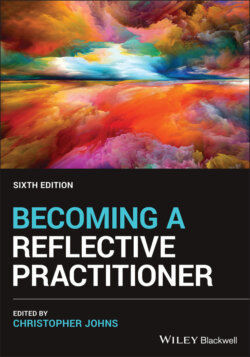Читать книгу Becoming a Reflective Practitioner - Группа авторов - Страница 41
The Subjective Voice
ОглавлениеThe subjective voice breaks through the received voice. It gives vent to self‐expression. Its learning mode is one of inward listening and watching, valuing, and accepting one’s own voice as a source of knowing. As Belenky et al. (1986, p. 85) note:
subjective knowing is the precursor to reflective and critical thought. During the period of subjective knowing, women lay down procedures for systematically learning and analysing experience. But what seems distinctive in these women is that their strategies for knowing grow out of their very embeddedness in human relationships and the alertness of everyday life.
The subjective voice is the gateway to self‐inquiry. The practitioner has an opinion. They begin to question received knowledge, no longer accepting on face value what they have been told as to their thoughts, beliefs, and actions. As one of Belenky et al.’s respondents noted (p. 85) ‘I keep discovering things inside myself. I am seeing myself all the time in a different light’. Such words reflect an awakening of self. Life suddenly becomes interesting with the focus on the self. Such practitioners are curious and open to new experiences. They are ripe for reflection.
Subjectivist women value what they see and hear around them and begin to feel a need to understand the people with whom they live and who impinge on their lives. Though they may be emotionally isolated from others at this point in their histories, they begin to actively analyse their past and current interactions with others. The idea that practitioners might be isolated is intriguing. Does the received voice mode of being deny expression of opinion and feelings, and hence isolate the practitioner from others? It seems likely. However, the subjective voice is tentative, vulnerable in its uncertainty and hence may need to be guided in a community of like‐minded people. It may be confusing because it is competing with received voices. As such, it is easy to discount one’s own subjective voice as being unsubstantiated, even ridiculed by more ‘knowing’ others. Listening to yourself, it may seem to be an uncanny stranger on display (Cixous 1996). Reflection opens a space for expression and development of the subjective voice and the means to confront the authoritative voice that has dominated the way they had previously viewed themselves and their practice.
